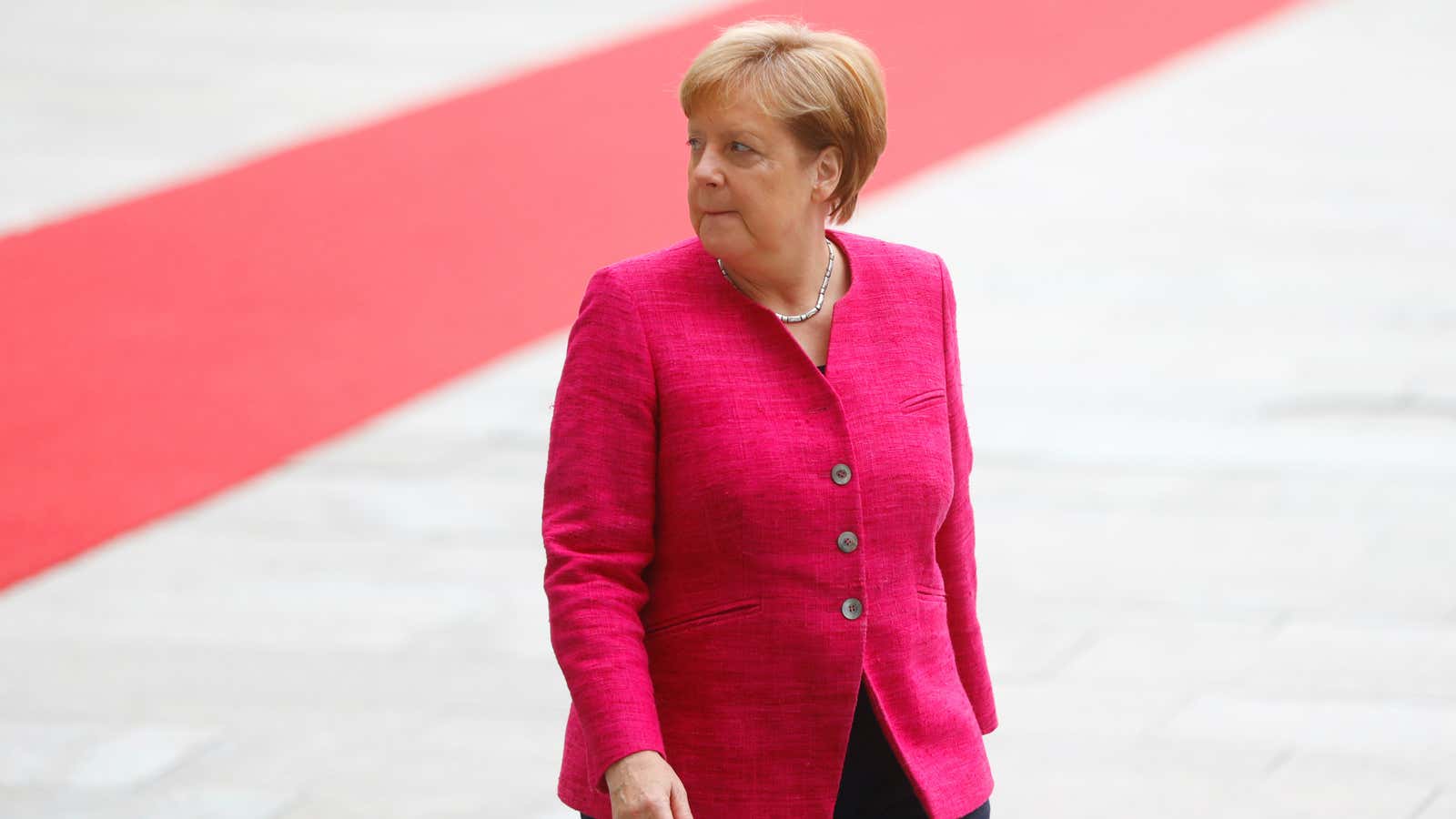German chancellor Angela Merkel has led by example on how to approach the refugee crisis in Europe. But her two-year struggle to get other European Union countries to follow suit, by overhauling the bloc’s asylum rules, won’t be over any time soon.
Despite the looming June deadline, Merkel said in a statement today (June 26) that there would be no agreement reached at this week’s EU summit.
At the center of the impasse is a disagreement about who should bear the ultimate responsibility for handling an asylum seeker’s claim. Currently, migrants are processed in the state in which they arrive—something that has recently placed a lopsided burden on countries like Italy, where the migrant crisis has not abated as much as it has elsewhere.
Even then, Germany is still home to the majority of Europe’s refugees.
This follows its 2015 decision to process the applications of most Syrian asylum seekers who reached the country during the peak of the migrant crisis, even if they had landed elsewhere first.
Italy proposes the end of this system. Its new prime minister, Giuseppe Conte, has called for the “automatic” redistribution of asylum seekers arriving in Italy to other EU countries, much to the chagrin of countries like Hungary and Poland, who staunchly oppose those kinds of burden-sharing measures.
This is bad news for Merkel, who is facing down an active revolt at home and who has toiled for years to placate the conservative elements of her coalition and spur other EU countries to follow Germany’s lead.
Horst Seehofer, the leader of one of her coalition partners—the Bavarian Christian Social Union (CSU)—is threatening to defy her and turn away migrants at the German border if they have already been processed in other EU countries. This, Merkel says, can only be done if other countries agree.
Seehofer has given Merkel until the end of the month to negotiate such a deal. Leaders of the CSU and Merkel’s Christian Democratic Union (CDU) came together for a crisis meeting of sorts (link in German) this afternoon. But the decision on how the parties will proceed has been deferred until Monday’s meeting between the groups.
